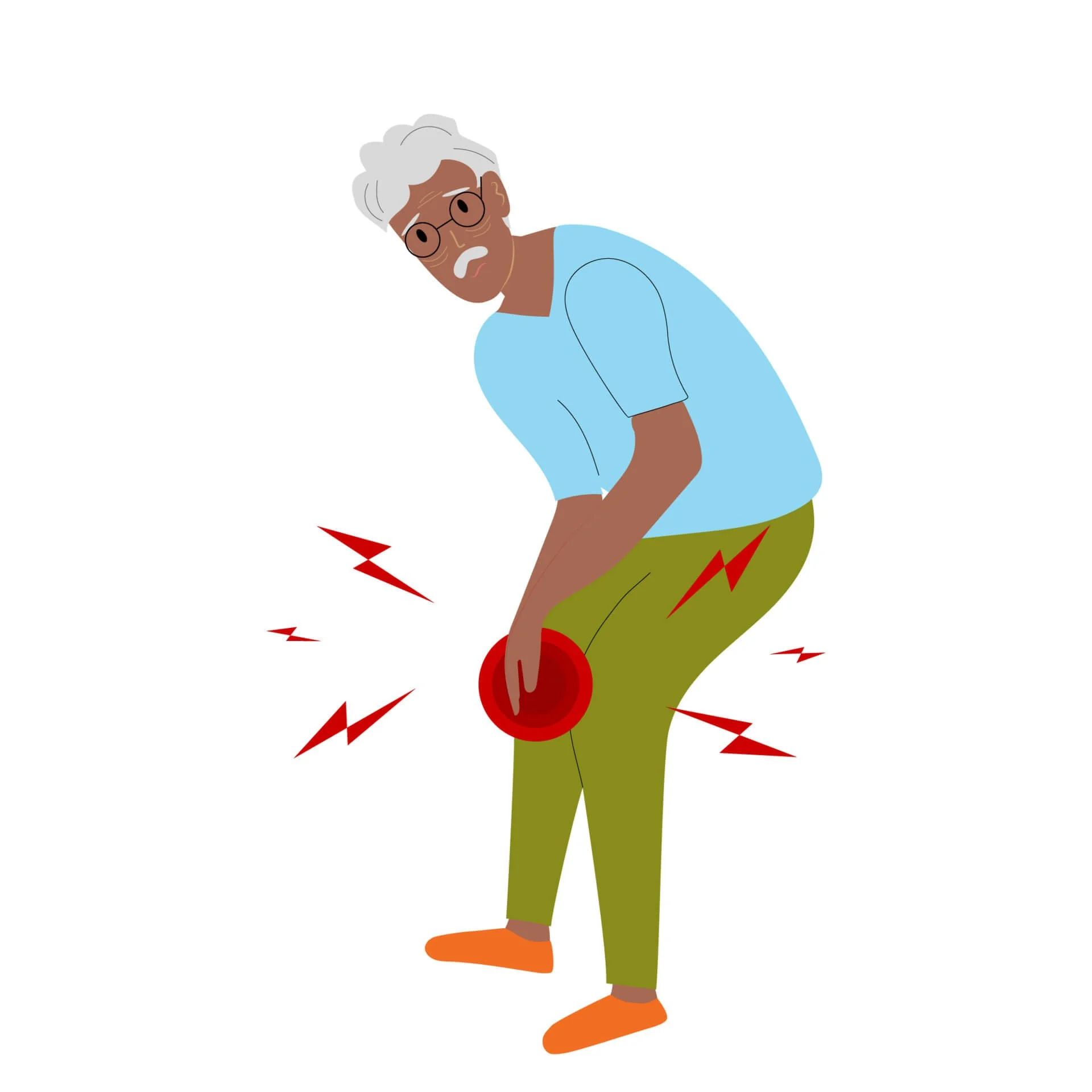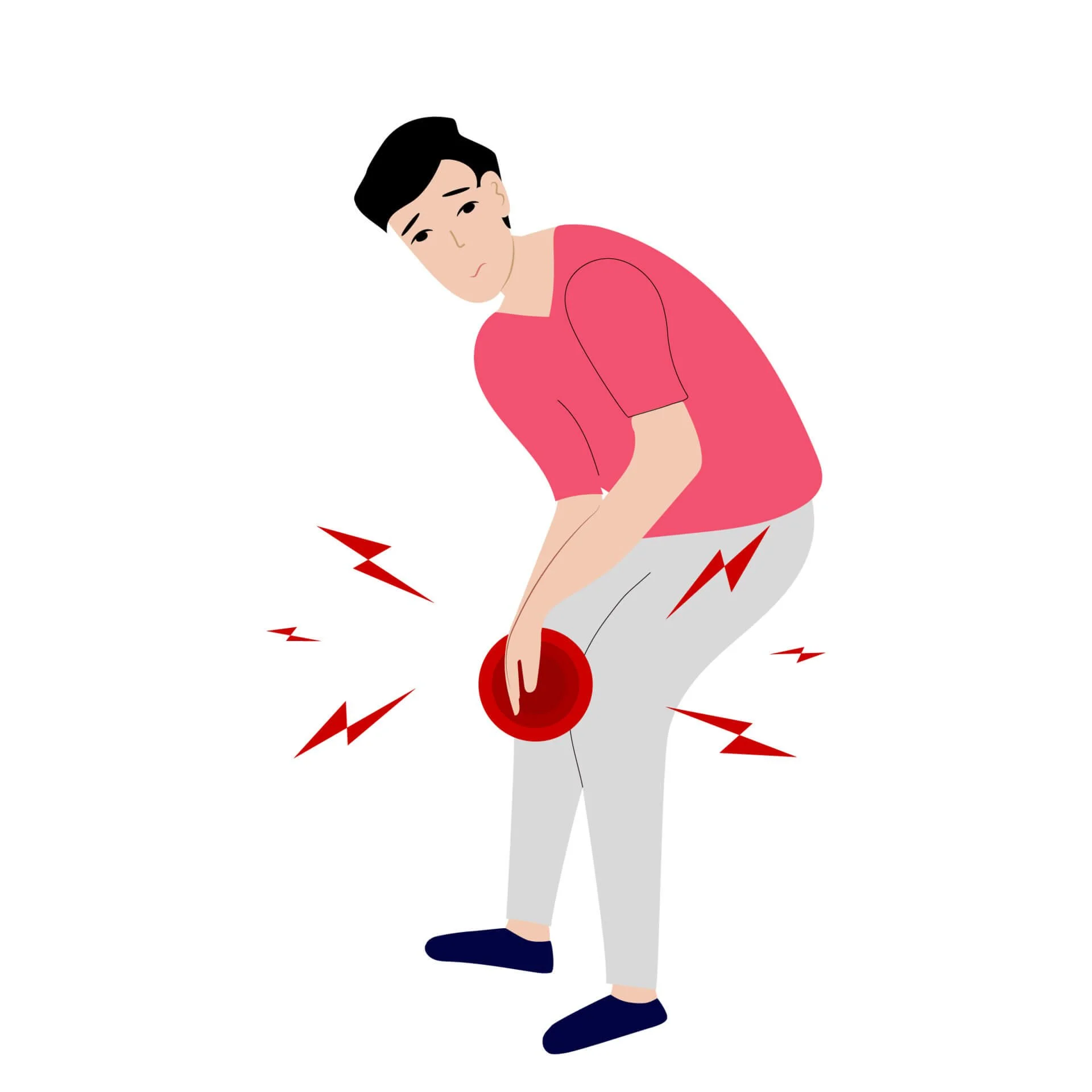Chronic Knee Pain After Knee Replacement: Get Relief Now!
Navigating Life with Chronic Knee Pain After Total Knee Replacement: An In-depth Guide
Chronic knee pain after total knee replacement is a condition that affects many people worldwide. It is defined as persistent pain that lasts for more than three months following the surgical procedure. While total knee replacement is designed to relieve pain and restore function, in some instances, the pain persists, creating a new set of challenges for the patient.
You might ask, “Why would there be pain after a procedure specifically done to alleviate it?” The answer lies in the complexity of our bodies and the intricate process of healing. Pain, in its essence, is a signal from our body that something is not right. In the case of chronic knee pain after total knee replacement, the body might still be responding to the trauma of surgery, or there could be other underlying problems that were not addressed during the procedure.
Living with chronic knee pain after total knee replacement can be physically and emotionally draining. The constant discomfort can hamper your daily activities and affect your quality of life. However, understanding the nature of this pain and exploring various treatment options can help manage the symptoms and improve your overall well-being.
Want to learn more? Let’s dive right in!
Disclosure: This blog post may include affiliate links of companies and products that we believe in, which means The Chronic Pain Blog could earn a commission if you choose to buy something via these links, without any extra charge to you.
What this blog will cover…
Causes of chronic knee pain after total knee replacement
Living with chronic knee pain: Personal experiences
What helps nerve pain after knee replacement: A closer look at the solutions
Non-surgical treatments for chronic knee pain after total knee replacement
Role of physical therapy in managing chronic knee pain
Diet and lifestyle changes to help with chronic knee pain after total knee replacement
Mental health and chronic knee pain: Dealing with the emotional aspect
When to seek medical advice for chronic knee pain after knee replacement
Navigating life with chronic knee pain after total knee replacement
1. Causes of chronic knee pain after total knee replacement
Determining the exact causes of chronic knee pain after a total knee replacement can be challenging. Several factors can contribute to this condition. One common cause is the body's response to surgery. The trauma from the operation can cause inflammation and nerve damage, leading to persistent pain.
Another cause could be improper alignment or loosening of the implant. Over time, the artificial joint may wear down or shift, causing discomfort and pain. Infections, either at the surgical site or elsewhere in the body, can also lead to chronic pain.
Lastly, pre-existing conditions such as osteoarthritis, rheumatoid arthritis or other autoimmune disorders can contribute to persistent pain post-surgery. It's important to note that these are not the only causes, and each individual's experience can vary greatly.
2. Living with chronic knee pain: Personal experiences
Dealing with chronic knee pain after total knee replacement is a daily struggle. Simple tasks such as walking, climbing stairs, or even standing for prolonged periods can become difficult. This can lead to a significant decrease in mobility and independence, causing feelings of frustration and helplessness.
However, many people have found ways to cope with this pain and improve their quality of life. They often do this through a combination of treatments, lifestyle changes, and a positive mindset. It's important to understand that while the journey may be challenging, it is not impossible.
3. What helps nerve pain after knee replacement: A closer look at the solutions
Nerve pain after knee replacement can be intense and debilitating. However, there are ways to manage this. Pain medications, including over-the-counter and prescription drugs, can provide temporary relief. There are also topical creams and gels designed to numb the nerves in the affected area.
Alternative therapies such as acupuncture, massage, and biofeedback have also shown promise in managing nerve pain post-surgery. These treatments work by stimulating the body's natural pain relief mechanisms.
Physical therapy and exercises can also help alleviate nerve pain. These techniques are designed to strengthen the muscles around the knee and enhance flexibility, which can reduce the strain on the nerves.
4. Non-surgical treatments for chronic knee pain after total knee replacement
While surgery is sometimes necessary to address chronic knee pain after total knee replacement, there are many non-surgical treatment options. These include physical therapy, pain management techniques, and lifestyle modifications.
Physical therapy can be beneficial in restoring strength and mobility in the knee. It involves a series of exercises that are designed to improve flexibility, balance, and coordination.
Pain management techniques include the use of medications, nerve blocks, and alternative therapies such as acupuncture and chiropractic care.
Lifestyle modifications mainly involve weight management and regular exercise. Maintaining a healthy weight can reduce the strain on the knee, while regular physical activity can help strengthen the muscles around the knee and improve overall joint health.
5. Role of physical therapy in managing chronic knee pain
Physical therapy plays a crucial role in managing chronic knee pain after total knee replacement. It aims to restore function, improve mobility, and reduce pain. It involves a variety of exercises tailored to the individual's specific needs and abilities.
Physical therapists also educate patients on how to perform daily activities safely and efficiently. They provide guidance on proper body mechanics to prevent further injury and pain.
Moreover, physical therapy can help patients regain their confidence and independence. The process of recovery can be slow and challenging, but with the right guidance and support, it is possible to overcome the hurdles and lead a fulfilling life.
6. Diet and lifestyle changes to help with chronic knee pain after total knee replacement
Diet and lifestyle changes can significantly impact the management of chronic knee pain after total knee replacement. A well-balanced diet rich in anti-inflammatory foods such as fruits, vegetables, whole grains, and lean proteins can help reduce inflammation and promote healing.
Regular physical activity is also essential. Low-impact exercises such as swimming, cycling, and yoga can strengthen the muscles surrounding the knee, improve flexibility, and promote overall health.
Additionally, maintaining a healthy weight is important as excess weight can put additional strain on the knee, leading to increased pain. It's also beneficial to avoid smoking and limit alcohol consumption as these habits can hinder healing and increase the risk of complications.
7. Mental health and chronic knee pain: Dealing with the emotional aspect
Chronic knee pain after total knee replacement can take a significant toll on mental health. The constant pain and limited mobility can lead to feelings of frustration, anxiety, and depression. Therefore, it's crucial to address the emotional aspect of this condition.
Cognitive-hebavioural therapy (CBT) can be beneficial in managing the emotional impact of chronic pain. It teaches individuals how to cope with negative thoughts and feelings, and develop strategies to manage pain better.
Mindfulness and meditation can also help. These practices allow individuals to focus on the present moment and cultivate a positive mindset. They also promote relaxation, which can help reduce pain.
8. When to seek medical advice for chronic knee pain after knee replacement
While it's normal to experience some pain after total knee replacement, chronic pain is not. If you're experiencing severe or persistent pain, it's important to seek medical advice. This is particularly true if the pain is accompanied by other symptoms such as swelling, redness, warmth, or difficulty moving the knee.
Your healthcare provider will evaluate your symptoms and may recommend further tests to determine the cause of the pain. Based on the findings, they will suggest an appropriate treatment plan. Remember, it's crucial to communicate openly with your healthcare provider about your pain and any concerns you may have.
9. Navigating life with chronic knee pain after total knee replacement
Living with chronic knee pain after total knee replacement can be challenging, but with the right knowledge and support, it is possible to manage the pain and lead a fulfilling life. It's important to remember that everyone's journey is different, and what works for one person may not work for another.
Seek professional help when needed, and don't hesitate to ask for support from friends and family. Stay active, maintain a healthy diet, and take care of your mental health. Remember that you are not alone, and there are resources available to help you navigate this journey.
Remember, it's not just about managing the pain, but also about improving your overall quality of life. So, take one step at a time, and don't lose hope. You are stronger than you think, and you have the power to overcome this challenge.
Check out our other posts and our book recommendations to learn more!
The Chronic Pain Blog 💗
DISCLAIMER: INFORMATION PROVIDED VIA OUR CONTENT (VIDEOS, AUDIOS, BLOGS, PDFS, POSTS AND OR COMMENTS) ARE FOR GENERAL INFORMATION PURPOSES ONLY AND NOTHING PUBLISHED CONSTITUTES ADVICE UPON WHICH YOU SHOULD RELY. WE DO NOT ACCEPT LIABILITY UNDER ANY CIRCUMSTANCES AND ARE NOT RESPONSIBLE FOR THE CONTENT OR ACCURACY, OR FOR ANY OPINIONS, VIEWS OR VALUES EXPRESSED IN ANY VIDEOS, BLOGS, POSTS AND OR COMMENTS SUBMITTED BY USERS AND THOSE REMAIN SOLELY THE OPINIONS, VIEWS AND OR VALUES OF THE RELEVANT USER.
Sources:
Holland, K. (2015). Chronic Knee Pain: Causes, Symptoms, and Diagnosis. [online] Healthline. Available at: https://www.healthline.com/health/chronic-knee-pain.
Johnson, J. (2018). Chronic knee pain: Causes, risk factors, treatment, and tips. [online] www.medicalnewstoday.com. Available at: https://www.medicalnewstoday.com/articles/311308.
Orthopaedic Institute of Pennsylvania (2020). Chronic Knee Pain Causes and Treatment | OIP. [online] Orthopedic Institute of Pennsylvania. Available at: https://www.oip.com/chronic-knee-pain-causes-treatments/.






